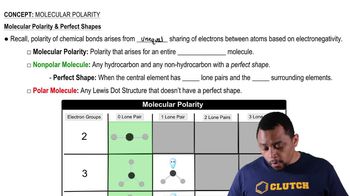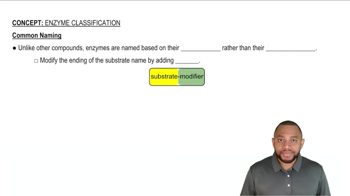Which of these fatty acids has the lower melting point? Explain why.
a. Linoleic acid
b. Stearic acid
 Verified step by step guidance
Verified step by step guidance Verified video answer for a similar problem:
Verified video answer for a similar problem:



 :53m
:53mMaster Physical Properties of Fatty Acids Concept 1 with a bite sized video explanation from Jules
Start learning